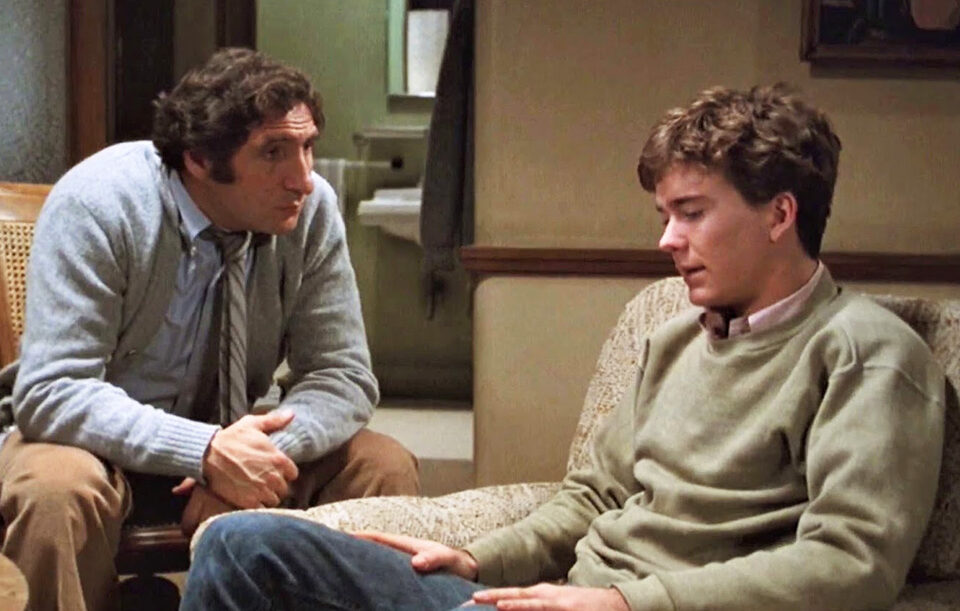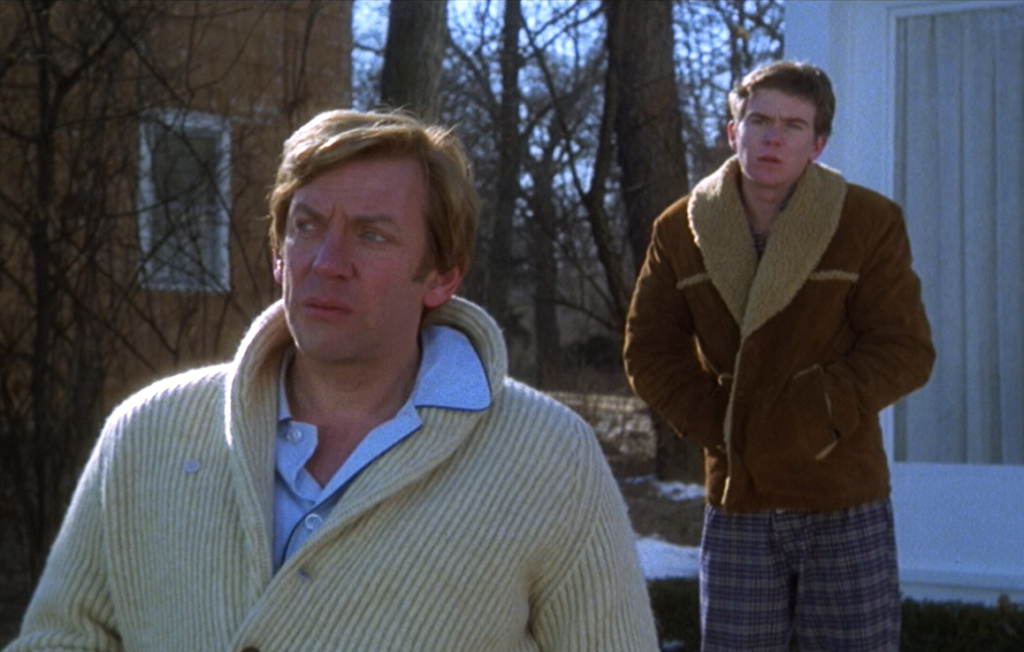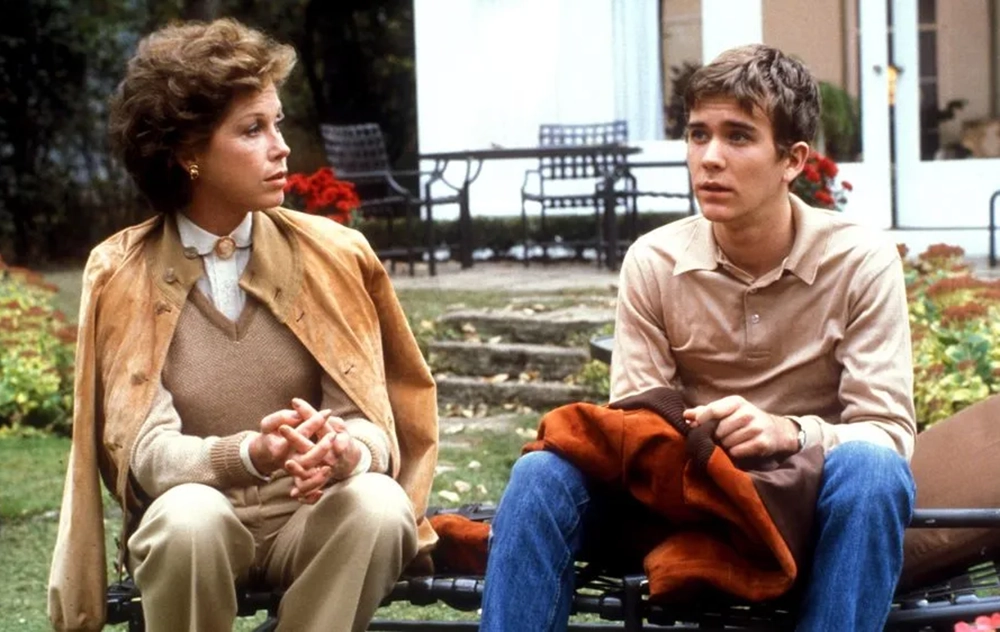The recent passing of actor Donald Sutherland last week brought to mind an old classic—Robert Redford’s “Ordinary People” (1980). It’s hard to call the film unsung, given the fact it took home an Oscar for ‘Best Picture’ the year following its release. But that’s what it feels like. Stemming from a novel written by Judith Guest, “Ordinary People” captures the funereal yet hopeful tones she presented, using skillful acting to bring the story to life. The cinematography is still and light—the leaves of fall and its focal family’s idyllic house could be out of a lighter movie. Yet tragedy hangs over it. Part of that tragedy is a couple, Calvin and Beth, (Donald Sutherland and Mary Tyler Moore, both excellent) who have lost a son a year ago in a boating accident. Another part of the tragedy is that their other son, Conrad (Timothy Hutton) tried to take his life in the aftermath. But the real sorrow is the family’s inability to heal, which Redford and his cast paint with the uncomfortable it deserves.
Being from a novel, “Ordinary People” takes creative license to bring its characters’ inner monologues out into the open. Yet the film flows well as it takes off on its own. The film wisely does’t detail things chronologically. It begins with a still shot of the Jarrett’s palatial home, ‘Canon in D’ by Pachelbel playing in the background. But it soon gives way to Conrad’s room, where he is having a nightmare about his brother’s drowning, juxtaposed with him trying to fit back in to normal life. He’s a junior, but was supposed to be a senior. His was held back after missing four months of school while in a hospital after his suicide attempt. How did he attempt suicide: “Gillette Super Blue,” he replies dryly to his therapist (Judd Hirsch, who earned a ‘Best Supporting Actor’ Oscar nomination for his role as Dr. Berger).
A Terrific Film Debut from Timothy Hutton
“Ordinary People” excels at the way it hands Conrad his outpatient status, and Hutton excels at bringing his insecurity and guilt to life. Everyone from his life before the accident and suicide attempt treat him with kid gloves, as if the smallest thing will send him back for the razor. To heal from this, he wants to talk about things: his deceased brother, his family before the tragedy. His father tries to support him but often doesn’t know what he needs. His mother, on the other hand, is a woman driven by perfection and is emotionally closed off. She also resents Conrad (for the boating accident? For his suicide?) at best, and blames him at worst. “You can’t even see that she hates me!” he hurls at his father. Sutherland’s brilliance is his naivety; this might be the first time this thought has ever occurred to him.
“Ordinary People” takes place in a different time. It was released in 1980, but feels ‘70s. The hair and clothes of its high schoolers are identifying of the time. You could see them in any of a dozen school comedies (“Back to School,” “Porky’s,” etc.). But only “Ordinary People” doesn’t feel like a movie: it feels like real life. Conrad has a friend, Lazenby (Fredric Lehne), and the two have some awkward scenes as they tease out how to move on from his brother’s death.
The Effect of Tragedy and its Aftermath

Conrad also meets a pretty girl (Elizabeth McGovern, her debut), a love interest he struggles to connect with due to his isolation and self esteem. But Director Redford finds a way for them to connect. It’s truncated from Guest’s novel—though the burgeoning relationship stays intact—and is juxtaposed alongside a girl Conrad knew from the hospital (Dinah Manoff), who he tries to reconnect with. The scenes between them feel real; as do the scenes between Conrad and his mother and father. There’s a palpable tenseness, and Redford lets us experience the awkwardness. There’ also a tangible decay in the family unit we feel every step of the way. As Conrad starts to realize (and maybe forgive) his mother for the fact she can’t give him more, Calvin realizes that maybe he can’t—and worse: maybe Beth never loved him in the first place.
The acting in the film is great all around (“Ordinary People” won four Oscars and was nominated for six), but to me it’s Hutton who shines the most. He brings facial acting way ahead of its time, and his scenes with Judd Hirsch are fantastic. There is a palpable pain in Conrad that he wants to let out but is afraid. Hirsch helps him to, when his father—and especially his mother—aren’t always able. Hutton also brings the requisite teenage awkwardness without laying it on too thick. He’s a teenager, going through the normal teenage emotions with the added struggle of a home in strife. He’s also trying to let himself both feel his brother’s death and not blame himself for it. Guest’s book was always a favorite of mine in high school; but it took rewatching this movie, 27 years later, to realize why: I saw so much of myself in Conrad. I was always in awe that Guest was able to write—and make so real—the thoughts and feelings of this teenage boy.
Sad and Bittersweet—Yet Hopeful

Not to slight her, Mary Tyler Moore—stepping out of her comedic comfort zone in this dramatic portrayal—earns her ‘Best Actress in a Lead Role’ nomination. Sutherland’s role may be passive—until the end—but hers is truly the thankless one. You’ll hate her along the way and wonder why she can’t be there for her son. It’s until you realize that maybe she can’t be there for anybody, that she just isn’t built that way. And then it hits you; and then “Ordinary People,” underneath its healing and growing, is also really sad and bittersweet.
In a modern world of films that try to address inclusion, equity, and those who fall through the cracks in society, “Ordinary People,” with its whiteness and affluence, may seem dated. But it’s themes are not. Nor is its emotion. Its characters’ pain is real and feels like a still-life portrait of grief rather than a scripted movie. There were so many times for it to jump into the dramatic, but Redford keeps Guest’s narrative sacrosanct. The film is about love, loss, healing, and living. Its greatest takeaway is that you feel it. And even if things don’t work out they way its characters may have wanted, you still get the sense they might be okay. In a cynical world, sometimes that’s all we need.
“Ordinary People” is available to watch or rent from most streaming services.



